It was Simchat Torah, a Jewish holiday that celebrates the completion of the annual cycle of the reading of the Torah. The reading then begins again on the same day and is cause for joyous celebration. Many Modern Orthodox Jews disconnect from the internet and step away from their phones, as work, writing, commerce and travel are not permitted.
It was on this holiday that Israel was attacked by Hamas, a militant organization based in Gaza. In an attack involving thousands of rockets and ground forces, the militants killed 1,200 people and abducted 240, many being women and children. Israel retaliated with a barrage of missiles and ground offensives, killing over 13,000 and laying siege on Gaza’s resources that affected 2.3 million Palestinians.
Cecelia Ashenberg, a senior speech language and hearing sciences major and Modern Orthodox Jew, described concluding the sacred book as an incredible experience. She was in Synagogue when the news of the attacks circulated.
While many Jewish students were unaware of the events unfolding in the south of Israel, those who still had their phones were burdened with breaking the news.
“I saw my friend walk into the building, and the look on her face. I was like, ‘What’s going on?’ … she had to break it to a bunch of us that this was going on,” Ashenberg said.
“When I heard about it, I thought it was just the regular, which is just like missiles and that type of thing,” recounted sophomore computer science major Leah Sellam. But upon turning on her phone and reading the headlines of the rising death count, “I just started bawling for like hours. It was really, really hard for me.”
Almost 10 percent of the University of Massachusetts Amherst undergraduate population and just over 6 percent of graduates are Jewish. The ties between the student population and Israel run deep, with many having close family and friends living in Israel or serving in its military. Many students have also utilized Birthright Israel, a program providing young Jewish adults a free trip to the country.
These values were amplified on Oct. 7 when students were left in a state of worry attempting to contact loved ones in Israel to ensure they remained out of harm’s way.
Ashenberg recounted her dad calling to inform her of the status of her extended family in Israel. He assured that her family remained safely in a bomb shelter. But she soon found out her aunt, who has 10 kids and was eight-and-a-half months pregnant, was prepared to give birth in the shelter.
“[She] quite literally had her legs up in the air and [was] like, ‘I’m prepared. I’m ready. If I have to deliver, I’m good,’” Ashenberg said. “It was a very whirlwind moment for all of us.”
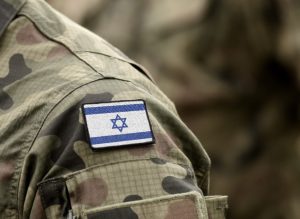
Conscription in Israel
Ashenberg served her sophomore year as co-president for Degel, a student group for the Modern Orthodox Jewish community at UMass, where her role included organizing Shabbat and leading prayer services. Her friend and former co-president is now serving in the Israeli army.
About 11 of the 53 kids in Ashenberg’s high school class had moved to Israel and enlisted. Maintaining communication with her friends thousands of miles away helps provide her a sense of comfort.
According to the Israel Defense Forces (IDF), every Israeli citizen over the age of 18 who is Jewish, Druze or Circassian is required to serve in the IDF. Men are expected to serve a minimum of 32 months and women 24.
“Most of my friends in Israel are my age, which means that they’re about to draft,” said Aviva Lehmann, a freshman political science and sociology major.
Lehmann’s cousin is in Nachal, a military cadre that combines military service in a combat unit with civilian service in a newly founded kibbutz or moshav. Her cousin is currently based on the Gaza border, and she said her brother’s best friend from camp is one of the hostages held by Hamas.
Lehmann, who was not raised in Israel but has family there, feels conflicted about conscription.
“[My family has] a different perspective because it’s like, everything’s working towards the army, like they know their whole life that they’re going to go to the army,” Lehmann said. “I am not empowered for them to go to the army. It scares me. I just, I don’t like it.”
Sellam expressed her appreciation for the draft, but recognized that people wrongfully demonize others for fighting in the IDF when it is required under law. “I think people are honestly angry and being able to fight for this cause is really empowering and … I guess people might feel like they’re righting a wrong a little bit,” she said.
Mother and graduate Ph.D. student Heather Kumove was left wondering whether her husband would be called back for reserve duty and had to explain to her toddler that her father may have to go to combat. “She was really scared. She would go and lock the doors at night and say, ‘I hope the bad men don’t come here,’” Kumove said.
Kumove’s mother had asked that she refrain from telling her children too much about the conflict. This is when she recognized the privilege she feels living far away from the dangers of the war.
“That’s the one luxury that we have. So we can just turn away from this. And my friends who have kids the same age as me who live in Israel, their children don’t have that luxury,” she said. “Their children are running into bomb shelters because they hear the siren. They have to keep the news on 24/7 just to make sure that they’re safe.”
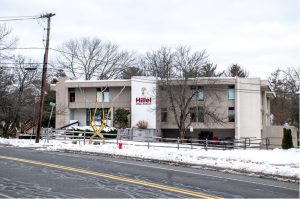
Finding community
Amidst the stress, fear and anxiety Jewish students have experienced, many have found comfort in community on campus. Ashenberg observed people comfort others who have friends and family in the reserves who were called into combat.
“The way that the community rallied around each other is so incredible,” she said.
Ashenberg and Lehmann shared their appreciation for UMass Hillel, the center for Jewish life on campus and an independent non-profit affiliated with Hillel International. Rabbi Aaron Fine, executive director of UMass Hillel, has worked to provide outreach and support to the Jewish community through events, discussions and lectures.
Fine noticed many Jewish students who had not been very involved in Hillel or the Jewish community before and were affected by the conflict are looking for a sense of community now.
“I think Hillel has done a great job at providing students a space for community on campus and we are really lucky to have a physical space to come together because I know a lot of other religious groups might not,” Sellam said.
Recalling a time where she felt support from her community, Ashenberg described when she learned that a friend of hers from sleepaway camp had been killed in combat.
“I must have looked like I had seen a ghost and my friend goes, ‘Pause, we’re tabling this,’ … We immediately changed the subject and like nobody thought about the [previous] conversation anymore.”
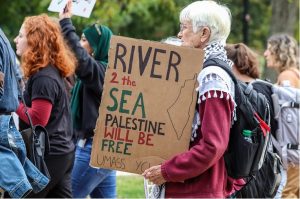
Campus protests and discourse
This campus is no stranger to social movements and the current international conflict has not been ignored by students. Protests, sit-ins and teach-ins have been prevalent since Oct. 7. UMass Hillel organized various events such as a vigilhonoring lives that have been lost and a talk with a survivor from the Nova music festival.
A result of the increased social action has been a similar increase in discourse amongst the student body. As a Ph.D. student in social psychology, Kumove said she specifically examines how collective emotions influence intergroup violence and attitudes, with a focus on how polarization contributes to conflict. She expressed that discussion amongst students and student groups at UMass is not constructive.
“People don’t want to have a debate. They have these very strong ideological stances that are almost dogmatic in how strongly people hold them,” she said.
Kumove is also a member of the Graduate Employee Organization, a unit of the United Auto Workers Local 2322 that supports graduate student workers.
On Oct. 10, GEO released a statement in solidarity with Palestine. While Kumove recognized the work GEO has done to improve working conditions and advocate for graduate students, she does not understand the union’s involvement in the international conflict and found the statement “sickening and dehumanizing.”
“I feel, in some ways very betrayed by the union, that the union decided to single out this issue,” she said. “Even at the time when GEO released that statement, I still didn’t know the whereabouts of all of my loved ones.”
This is not the first time GEO has publicly supported pro-Palestinian movements. In 2016, the union voted to support the Boycott, Divestment and Sanctions Movement, which “works to end international support for Israel’s oppression of Palestinians and pressure Israel to comply with international law.”
The union did not comment on the process behind releasing its latest statement in solidarity with Palestine.
Lehmann urged that students who have family and personal ties to the conflict are navigating it differently from others. “At the end of the day, like the outcome of this war, it has a direct effect on my life and on Palestinians’ [lives] … and it doesn’t have an effect on people who are not those identities.”
Administration’s role in fostering safety on campus
Since Oct. 7, UMass Chancellor Javier Reyes has sent two emails to the UMass community regarding the international conflict. The first condemned the attack on Israel by Hamas and recognized the suffering felt by Palestinians and Israelis. The second addressed the sit-in that occurred in the Whitmore building that resulted in 57 students arrested.
Ashenberg believes UMass has been effective in constructing a safe space for students and was pleased by the initial statement made by Reyes. “We felt like we had somebody on our side.”
Yet, she can’t help being fearful at times. “Every once in a while I can hide it a little bit. But when I know that I’m looking extremely Jewish, it is definitely nerve wracking to walk around this campus,” she said.
On Nov. 5, a violent incident occurred toward the end of a Hillel-led event honoring Israeli hostages taken by Hamas. A UMass student was arrested after assaulting a Jewish student attending the event.
Olive Yale, junior linguistics major and counter-protestor at the Oct. 12 protest for Palestine organized by the Students for Justice in Palestine, said they experienced harassment from other students while at the event.
While they have not reported the incident to authorities, Yale said they were yelled at with the chant “Zionists go home.” They also claimed to have had a physical altercation with a protester.
“He checks me with the shoulder and then elbows me a little bit and goes with his feet to try to trip me up,” Yale said. They also expressed being yelled at and tripped up by another protestor with a megaphone.
“I do not … feel safe on this campus. And that is a tragedy,” they said.
The Collegian has not been able to independently verify that the incident occurred.
Kumove echoed Yale’s feeling that she does not feel safe on campus as a result of the protests and rhetoric circulated by students. She said she warned the Chancellor that SJP produced rhetoric that could lead to violence.
“These types of events and instances are happening more often,” Kumove said. “I don’t feel safe. I didn’t feel safe when I saw, you know, ‘From the river to the sea’ and ‘Intifada Intifada Intifada’ chanted on campus. And I won’t feel safe until the University takes a stance that says that this type of violent language is unacceptable.”
Before each SJP or UMass Dissenters-organized rally or protest since Oct. 7, an organizer instructs the crowd to refrain from engaging with counter-protesters and to maintain a peaceful presence.
Lehmann expressed the University at times seems to be a polarizing force amongst the student body. “I don’t feel like the administration is very good at fostering dialogue between groups,” she said.
Fine appreciated Hillel hiring of additional police presence during Shabbat services at Hillel. “Unfortunately, this is something that’s not new for Jewish communities,” Fine said.

Looking Forward
The tragic events that unfolded in October have far from left student’s minds, but many have found ways to help themselves navigate the stress of being a college student while enduring the effects of an international conflict.
A tip shared by both Sellam and Ashenberg was to reduce the use of social media and to consume information with a critical eye. But Lehmann said that while her friends have told her to step away from the media, she needs to stay connected. “I do need to be on my phone and be on social media to keep updated with my friends and family. So that was kind of not an option.”
Being present and surrounded by friends is a value that Ashenberg holds, and Sellam has found that focusing on schoolwork and retaining a healthy lifestyle has helped her as well.
Looking forward, Rabbi Fine aims to continue supporting students “to make sure that they’re doing the basics of eating, sleeping, walking, breathing, talking to friends face to face, and not just getting sucked down to, you know, be doomscrolling all day because that’s not good for anybody’s mental health,” he said.
Hamas and Israel are nearing the end of a truce that has led to the release of around 85 hostages being held by Hamas in exchange for 180 Palestinians held in Israeli prisons.
Jack Underhill can be reached at [email protected] and followed on X @JackUnderhill16

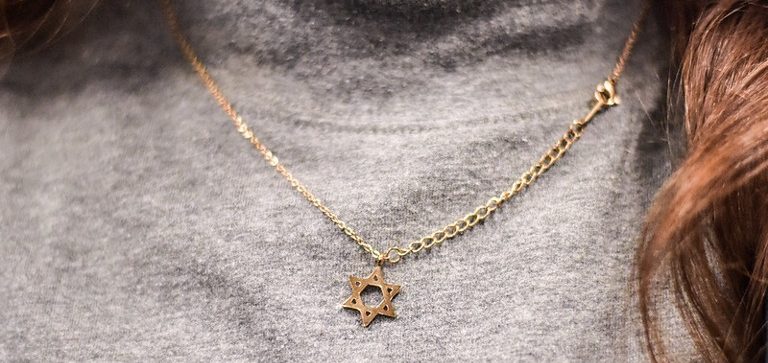













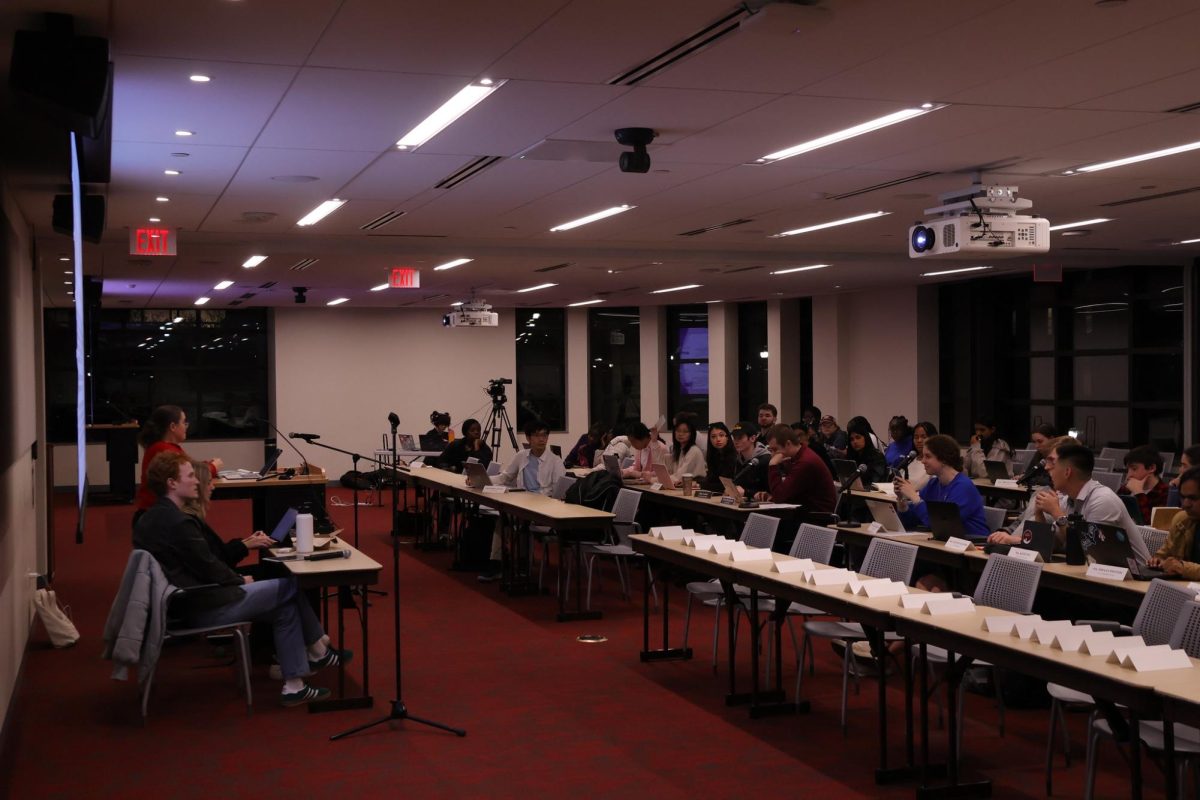
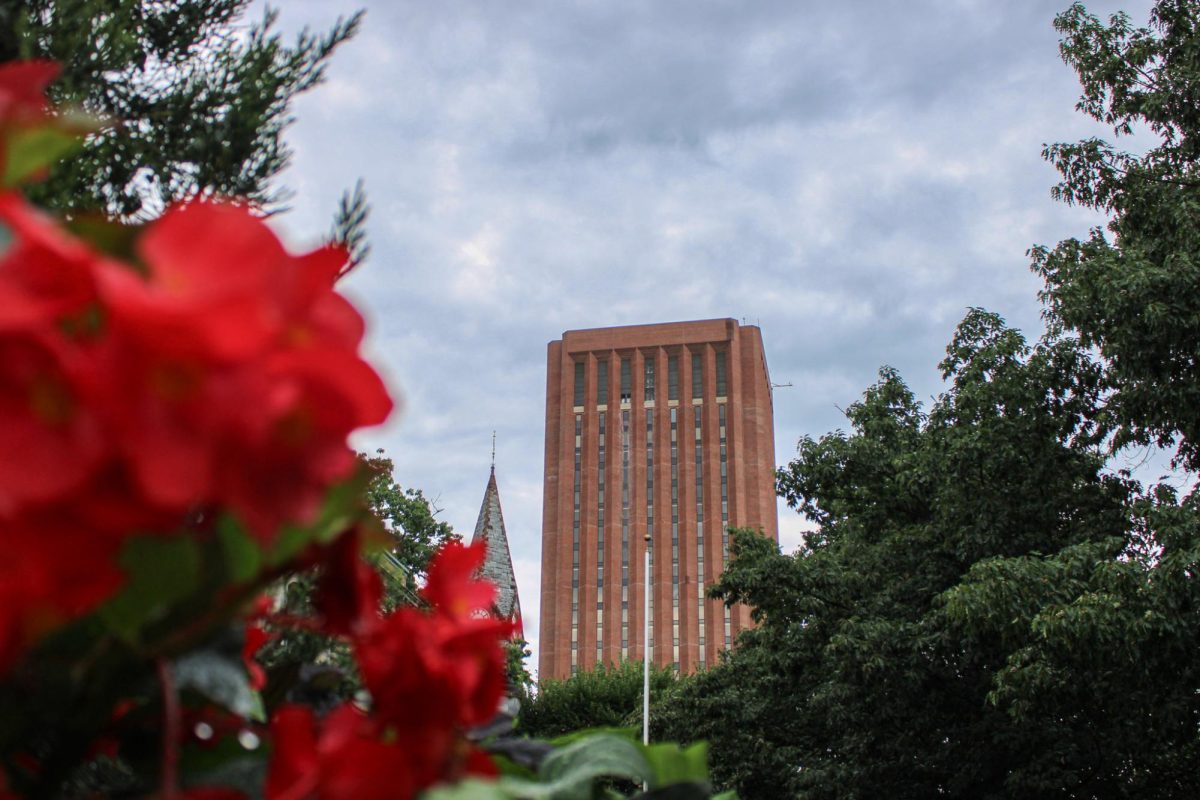


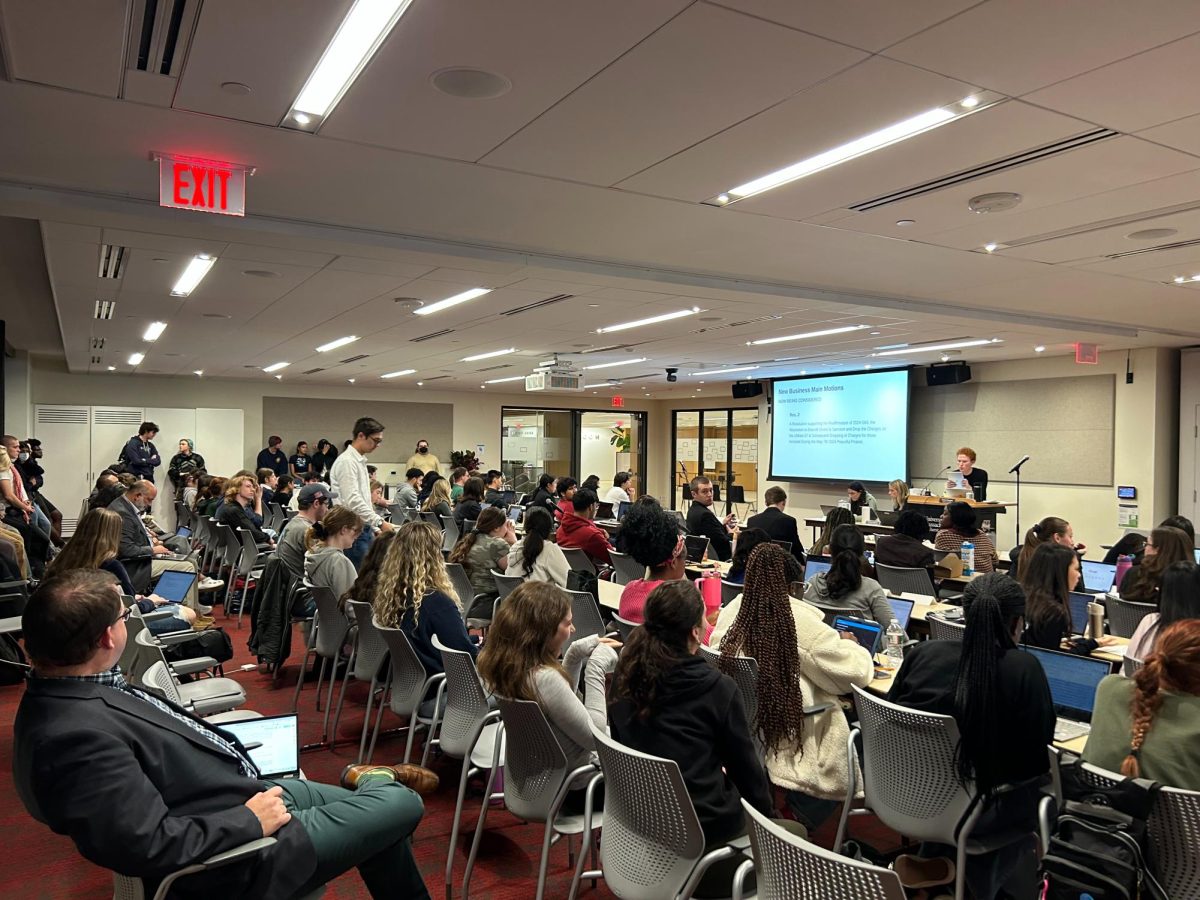
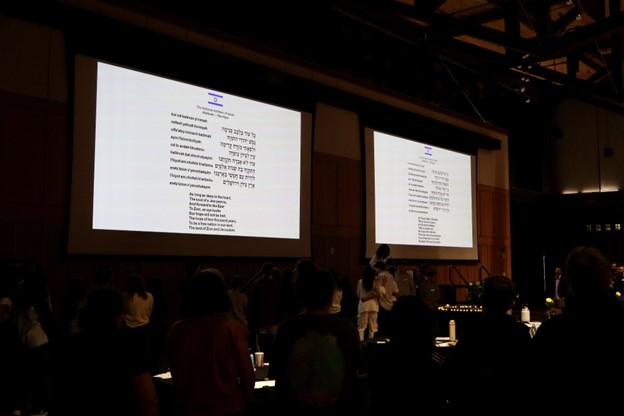
Evan Fellman • Nov 30, 2023 at 4:10 am
Scary what students are willing to do to their peers. Stay safe